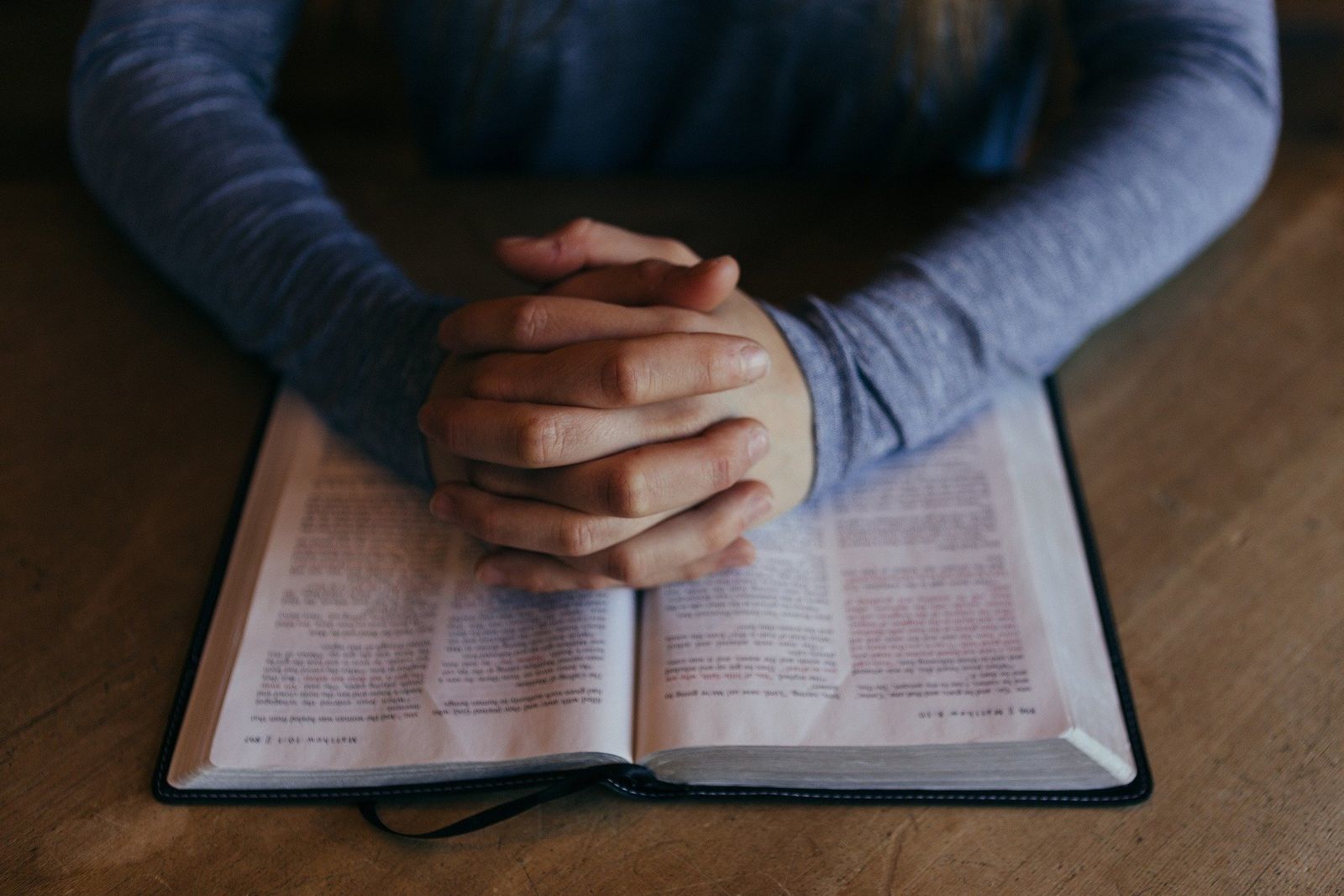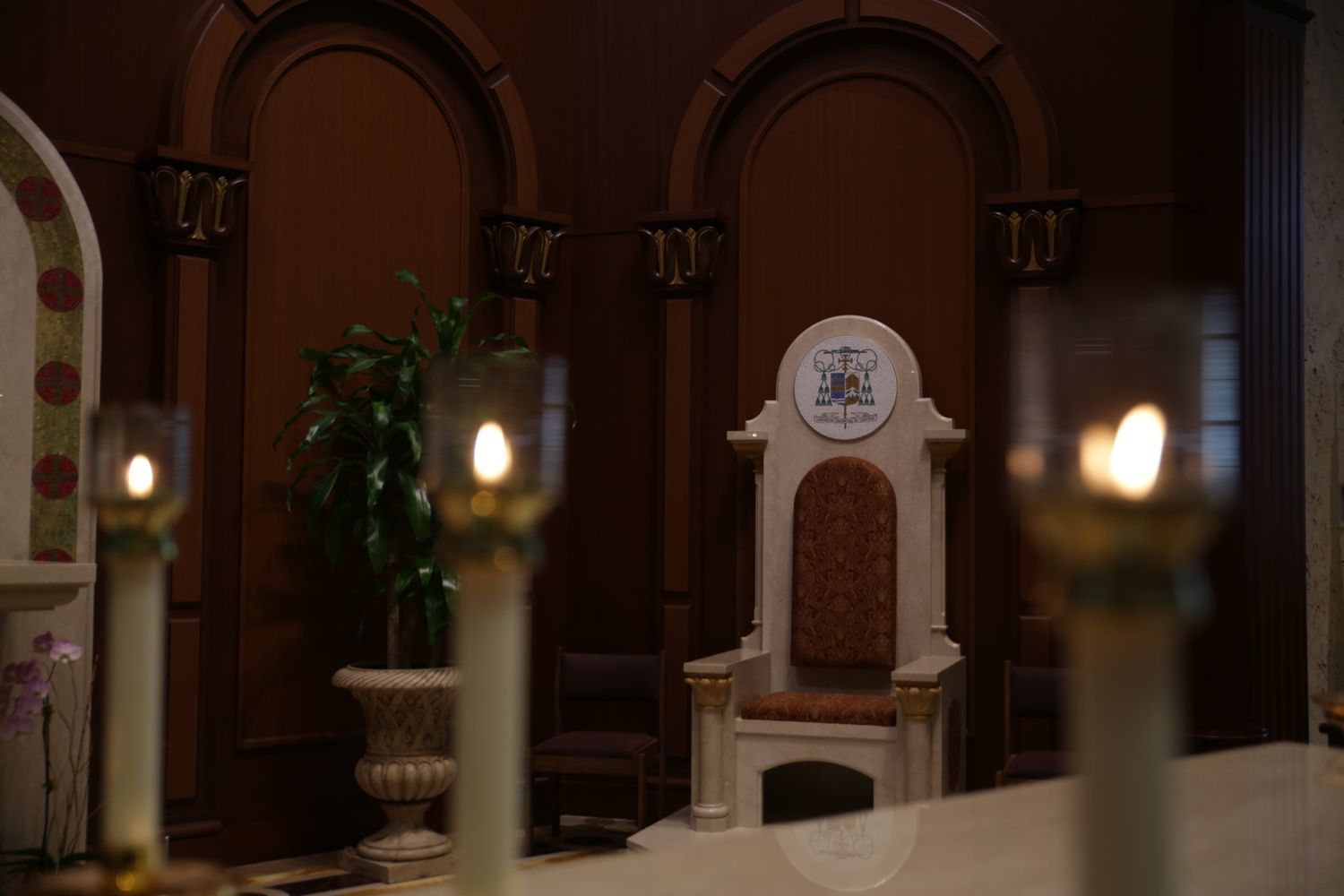
"A great prayer for life is urgently needed, a prayer which will rise up throughout the world. Through special initiatives and in daily prayer, may an impassioned plea rise to God, the Creator and lover of life, from every Christian community, from every group and association, from every family and from the heart of every believer."
Pope Saint John Paul II
Evangelium vitae
On January 22, 1973, the Supreme Court legalized abortion throughout the United States in its companion decisions Roe v. Wade and Doe v. Bolton. Since that time, millions of children have lost their lives, and millions of women and families have been wounded by abortion.
On June 24, 2022, the Dobbs v. Jackson Women’s Health Organization decision overturned Roe v. Wade, and we praise God for the great opportunity state and federal legislators now have to protect pre-born children. While God, in His mercy, ended the nearly fifty-year nationwide regime of abortion on demand, right now state and federal laws, in many instances, are still hostile to pre-born children. So, great prayer and advocacy is very needed.
The General Instruction of the Roman Missal (GIRM), no. 373, designates January 22 as a particular day of prayer and penance, called the "Day of Prayer for the Legal Protection of Unborn Children”:
In all the Dioceses of the United States of America, January 22 (or January 23, when January 22 falls on a Sunday) shall be observed as a particular day of prayer for the full restoration of the legal guarantee of the right to life and of penance for violations to the dignity of the human person committed through acts of abortion. The liturgical celebrations for this day may be the “Mass For Giving Thanks to God for the Gift of Human Life” (no. 48/1 of the Masses and Prayers for Various Needs and Occasions), celebrated with white vestments, or the Mass “For the Preservation of Peace and Justice” (no. 30 of the Masses and Prayers for Various Needs and Occasions), celebrated with violet vestments.
-USCCB.ORG
Letter from the Florida bishops in English (pdf) and Spanish (pdf):
Statement on the Day of Prayer for the Legal Protection of Unborn Children
January 22, 2024
Dear Brothers and Sisters in Christ,
Our fidelity to Christ calls us to uphold and protect the inviolable dignity and sanctity of all human life from the moment of conception until natural death. Great progress has been made in recent years to protect women and their preborn children in Florida. That progress, as noted below, is at great risk.
We are encouraged that our state’s 15-week abortion limit remains in effect as the Florida Supreme Court considers a challenge to it. The legislature’s passage of a bill to further limit abortion to six-weeks of gestation during the 2023 session and its approval by Governor DeSantis is a momentous achievement. This legislation also increases resources to pregnant women and young families through the Florida Pregnancy Care Network almost six-fold. If the 15-week law is upheld, the further limit to six weeks will go into effect thirty days later, ushering in a new era. Much remains to be done to properly recognize the dignity of the child in the womb, but this marks tremendous progress in the legal protection of preborn children in Florida.
This progress, as well as gains made over the past several decades to protect women and their preborn children from the harms of abortion, is at significant risk. An extreme ballot initiative proposing to amend our state constitution to legalize full-term abortion is of grave concern. If ultimately passed, the amendment would legalize abortion up until birth, including when the baby is capable of feeling pain. While the proposed amendment permits parental notification, the amendment would eliminate the current law requiring parental consent for a minor daughter to receive an abortion.
As is required of the petition initiative process, the proposed ballot language is under review by the Florida Supreme Court. In our briefs to the Court, we contend that the ballot title and summary are misleading, which should preclude its placement on the ballot. The title states the amendment "limits" government interference with abortion when the amendment actually prohibits all regulation before viability. Neither does the language provide fair notice of its impact on existing statutory protections for women. If this extreme amendment ultimately appears on the November 2024 ballot, we urge all Floridians to “vote no.”
A healthy society can only continue to flourish if based on a consistent recognition of the rights of each individual, especially the weakest and most defenseless. With this in mind, we remain committed to pursuing full legal protection of preborn children and continue to support efforts to offer practical assistance and accompaniment to women and their families experiencing difficulties during pregnancy and beyond. We invite all people of good will to join us in these endeavors.
Most Rev. Thomas G. Wenski, Archdiocese of Miami
Most Rev. Gerald M. Barbarito, Diocese of Palm Beach
Most Rev. Frank J. Dewane, Diocese of Venice
Most Rev. John G. Noonan Diocese of Orlando
Most Rev. Gregory L. Parkes, Archdiocese of St. Petersburg
Most Rev. William A. Wack, C.S.C. Diocese of Pensacola-Tallahassee
Most Rev. Erik T. Pohlmeier, Diocese of St. Augustine
Most Rev. Enrique E. Delgado, Archdiocese of Miami
Declaración en el Día de Oración por la Protección Legal de los Niños No Nacidos
22 de enero de 2024
Queridos Hermanos y Hermanas en Cristo:
Nuestra fidelidad a Cristo nos llama a defender y proteger la dignidad inviolable y la santidad de toda la vida humana desde el momento de la concepción hasta la muerte natural. En los últimos años se han logrado grandes avances para proteger a las mujeres y a sus hijos por nacer en Florida. Ese progreso se encuentra en gran riesgo, como se señala a continuación.
Nos alienta que, en nuestro estado, el límite del aborto después de 15 semanas continúe en vigor mientras el Tribunal Supremo de Florida estudia su impugnación. Durante la sesión de 2023, la aprobación por la legislatura de un proyecto de ley para limitar aún más el aborto a seis semanas de gestación, y su aprobación por el gobernador DeSantis, es un logro trascendental. Esta legislación también multiplica casi por seis los recursos destinados a las mujeres embarazadas y a las familias jóvenes a través de la Red de Atención al Embarazo en Florida. Si se ratifica la ley de las 15 semanas, el nuevo límite a seis semanas entrará en vigor treinta días después, lo que marcará el inicio de una nueva era. Queda mucho por hacer para reconocer como es debido la dignidad del niño en el vientre materno, pero esto representa un gran progreso en la protección legal en Florida de los niños antes de su nacimiento.
Este progreso y los logros alcanzados en las últimas décadas para proteger de los daños del aborto a las mujeres y a sus hijos antes de nacer, están en gran peligro. Una iniciativa electoral extrema que propone enmendar nuestra constitución estatal para legalizar el aborto a término es motivo de gran preocupación. Si se aprueba, la enmienda legalizaría el aborto hasta el nacimiento, incluso cuando el bebé es capaz de sentir dolor. Aunque la enmienda propuesta permite la notificación a los padres, la enmienda eliminaría la ley actual que exige el consentimiento paterno para que una hija menor de edad pueda someterse a un aborto.
De conformidad con el proceso de iniciativa de petición, el lenguaje propuesto para la papeleta se encuentra bajo revisión del Tribunal Supremo de Florida. En nuestras declaraciones al Tribunal, sostenemos que el título y el resumen de la papeleta son engañosos, lo que debería impedir su inclusión en la papeleta. El título sostiene que la enmienda "limita" la interferencia del gobierno en el aborto, cuando en realidad la enmienda prohíbe toda regulación antes de la viabilidad. El lenguaje tampoco ofrece un aviso justo de su impacto en las protecciones estatutarias existentes para las mujeres. Si esta enmienda extrema finalmente aparece en la papeleta de noviembre de 2024, exhortamos a todos los floridanos a "votar no".
Una sociedad sana solo puede prosperar si se basa en un reconocimiento consistente de los derechos de cada individuo, especialmente de los más débiles e indefensos. Con esto en mente, seguimos comprometidos con la búsqueda de la plena protección legal de los niños antes de nacer, y continuamos apoyando los esfuerzos para ofrecer asistencia práctica y acompañamiento a las mujeres y sus familias que experimentan dificultades durante y después del embarazo. Invitamos a todas las personas de buena voluntad a unirse a nosotros en estos esfuerzos.
Reverendísimo Thomas G. Wenski
Arquidiócesis de Miami
Reverendísimo Gerald M. Barbarito
Diócesis de Palm Beach
Reverendísimo Frank J. Dewane
Diócesis de Venice
Reverendísimo John G. Noonan
Diócesis de Orlando
Reverendísimo Gregory L. Parkes
Diócesis de St. Petersburg
Reverendísimo William A. Wack, C.S.C.
Diócesis de Pensacola-Tallahassee
Reverendísimo Erik T. Pohlmeier
Diócesis de St. Augustine
Reverendísimo Enrique E. Delgado
Arquidiócesis de Miami

